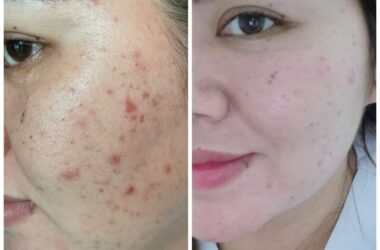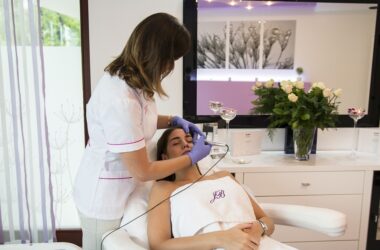Table of Contents
Hyperpigmentation: The Silent Skin Disruptor That’s Affecting Your Confidence
Are you tired of feeling self-conscious about the uneven tone and dark spots on your skin? You’re not alone. Hyperpigmentation, a common skin condition characterized by an excess of melanin production, affects millions of people worldwide. While it’s often considered a minor issue, hyperpigmentation can have a significant impact on your confidence and overall well-being. In this article, we’ll delve into the world of hyperpigmentation, exploring its causes, effects, and treatment options.
What is Hyperpigmentation?
Hyperpigmentation is a condition where the skin produces excess melanin, leading to dark spots, patches, or discoloration. It can occur on any part of the body, but it’s most common on the face, hands, and arms. There are several types of hyperpigmentation, including:
- Solar lentigines: age spots caused by sun exposure
- Post-inflammatory hyperpigmentation (PIH): dark spots caused by inflammation or injury
- Melasma: hormonal hyperpigmentation, often associated with pregnancy or birth control pills
- Acne-related hyperpigmentation: dark spots and scars caused by acne
Causes of Hyperpigmentation
The exact cause of hyperpigmentation can vary depending on the type. However, common factors that contribute to its development include:
- Sun exposure: UV rays can stimulate melanin production, leading to dark spots and discoloration
- Hormonal fluctuations: changes in estrogen and progesterone levels can cause melasma and PIH
- Inflammation: acne, eczema, and other inflammatory skin conditions can cause PIH
- Skin trauma: cuts, burns, or other injuries can lead to PIH
- Genetics: a family history of hyperpigmentation can increase an individual’s risk
Effects of Hyperpigmentation on Confidence
Hyperpigmentation can have a profound impact on an individual’s confidence and self-esteem. The effects can be both physical and emotional, including:
- Self-consciousness: individuals with hyperpigmentation may feel embarrassed or ashamed about their appearance
- Low self-esteem: the constant reminder of the dark spots or patches can lead to feelings of inadequacy
- Social anxiety: individuals may avoid social situations or feel anxious about their appearance in public
- Emotional distress: the emotional toll of hyperpigmentation can lead to depression, anxiety, and stress
Treatment Options for Hyperpigmentation
While there’s no cure for hyperpigmentation, various treatment options can help reduce its appearance. These include:
- Topical creams: hydroquinone, retinoids, and corticosteroids can help lighten dark spots and reduce inflammation
- Laser therapy: Q-switched lasers and Nd:YAG lasers can target specific wavelengths to reduce melanin production
- Microneedling: a minimally invasive treatment that stimulates collagen production and improves skin texture
- Microdermabrasion: a non-invasive exfoliating treatment that helps remove dead skin cells and improve skin texture
Conclusion
Hyperpigmentation is a common skin condition that can have a significant impact on an individual’s confidence and overall well-being. While it’s often considered a minor issue, it’s essential to address hyperpigmentation to improve skin health and boost self-esteem. By understanding its causes, effects, and treatment options, you can take the first step towards achieving the radiant, even-toned skin you deserve.
Recommended Products
-
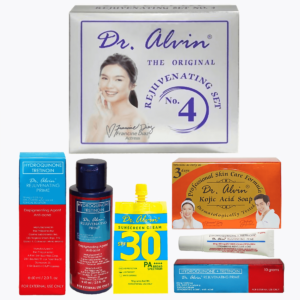 Dr. Alvin Rejuvenating Set No.4 (Prime) – Hydroquinone + TretinoinKD7.000
Dr. Alvin Rejuvenating Set No.4 (Prime) – Hydroquinone + TretinoinKD7.000 -
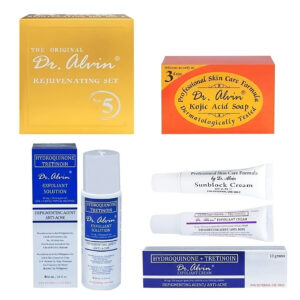 Dr. Alvin Rejuvenating Set No. 5 (Advance) – Hydroquinone + TretinoinKD7.000
Dr. Alvin Rejuvenating Set No. 5 (Advance) – Hydroquinone + TretinoinKD7.000 -
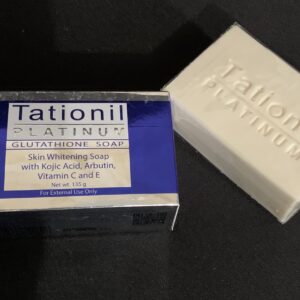 Tationil PLATINUM GLUTATHIONE SOAP by Dr. Alvin 135gKD2.000
Tationil PLATINUM GLUTATHIONE SOAP by Dr. Alvin 135gKD2.000 -
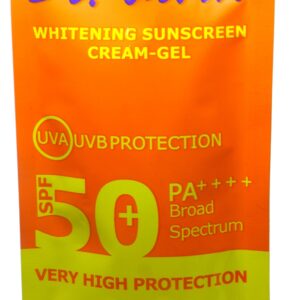 Dr Alvin Whitening Sunscreen 50 SPF PA++++ 50mlKD4.500
Dr Alvin Whitening Sunscreen 50 SPF PA++++ 50mlKD4.500 -
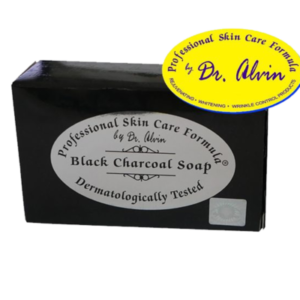 Dr. Alvin Black Charcoal Soap 135gKD2.500
Dr. Alvin Black Charcoal Soap 135gKD2.500 -
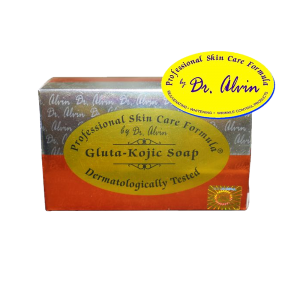 Dr Alvin Gluta-Kojic Soap 135gKD2.500
Dr Alvin Gluta-Kojic Soap 135gKD2.500 -
Product on sale
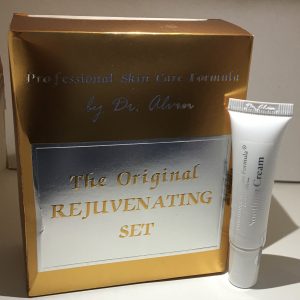 Dr Alvin Rejuvenating Set + Soothing CreamOriginal price was: KD12.500.KD9.000Current price is: KD9.000.
Dr Alvin Rejuvenating Set + Soothing CreamOriginal price was: KD12.500.KD9.000Current price is: KD9.000. -
Product on sale
 Dr Alvin Rejuvenating Set + Extra Sunblock CreamOriginal price was: KD11.500.KD9.000Current price is: KD9.000.
Dr Alvin Rejuvenating Set + Extra Sunblock CreamOriginal price was: KD11.500.KD9.000Current price is: KD9.000. -
Product on sale
 Dr Alvin Rejuvenating Set + Extra Kojic SoapOriginal price was: KD11.500.KD9.000Current price is: KD9.000.
Dr Alvin Rejuvenating Set + Extra Kojic SoapOriginal price was: KD11.500.KD9.000Current price is: KD9.000.


